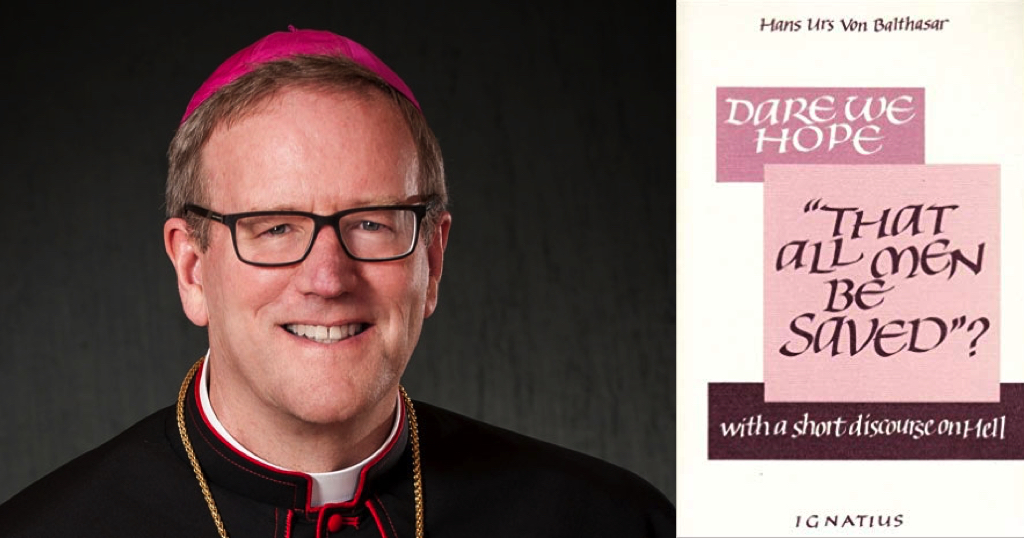Hans Urs von Balthasar was one of the most prominent—and controversial—Catholic theologians of the 20th century. What he is perhaps most known for is his belief that we can hope for the salvation of all men, a belief he lays out in his book, Dare We Hope “That All Men Be Saved”? (A quick note: this does not, strictly speaking, make von Balthasar a “universalist”, for he does not claim to know that all men will be saved; he just says it is reasonable to hope for such an outcome.)
Von Balthasar’s belief got him a good deal of criticism (although, as he notes, other noteworthy Catholics—such as St. Gregory of Nyssa—have held the belief before him). But in recent years von Balthasar’s views have made a comeback, as they have been given an imprimatur of sorts from one of the most popular bishops in the world, Bishop Robert Barron. Barron is an enthusiastic fan of von Balthasar, and he believes we can hope that all men be saved. But is this view a consistent with Revelation and Catholic teaching? I want to give just a brief explanation as to why it is not.
At the beginning of his book, von Balthasar engages some of his critics, and one particular criticism struck me:
Now comes a…paradox from G. Hermes: “We can well…hope for every [!] individual [!] man and pray that he attains salvation, because [?] we do not know what judgment God will pass upon him. But we cannot hope that all men will enter heaven, because that is expressly excluded through revelation”
As is obvious from von Balthasar’s editorial additions of exclamation points, he does not think too highly of Hermes’ argument. However, it is Hermes who is correct instead of von Balthasar. It is one thing to hope for each individual; after all, the Church does not declare specific individuals to be condemned to Hell (although Jesus appears to condemn Judas in Matthew 26:24). However, to hope for each individual man is different than hoping that all men be saved.
As a (admittedly crude) analogy, let me compare von Balthasar’s hope for universal salvation to my hope about my favorite baseball team, the Cincinnati Reds. Let’s say they are supposed to be very good next year (yes, I realize that takes a lot of imagination). Before every game, I will hope that they win. However, never would I hope that they win all 162 games, as I know that is a hope for something that is simply not possible. The reality is that they will lose some games no matter how good they are.
The problem with von Balthahasar’s hope for universal salvation is that it effectively negates human freedom. If all men are saved, then in truth there is no human element in the process of salvation, something which goes against Catholic teaching. To return to my analogy, if the Reds did somehow win all 162 games, I (along with everyone else) would suspect that something had been rigged. Likewise, if all men are saved, I would have to suspect that something is rigged, that man is not truly free—his salvation is predetermined regardless of the choices he makes. And freedom is a necessary component of love; without freedom, we are simply slaves of a benevolent master, not children of a loving father.

